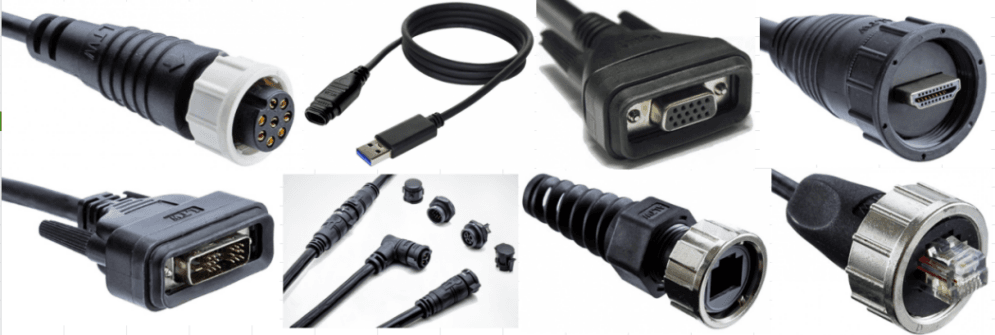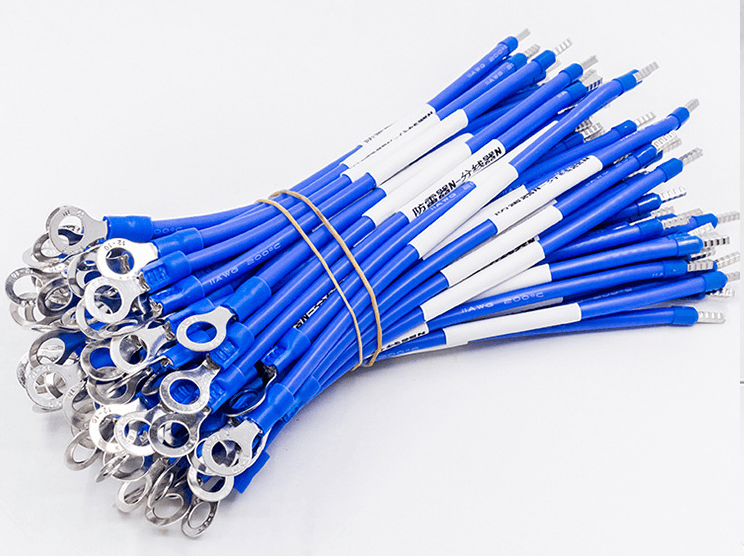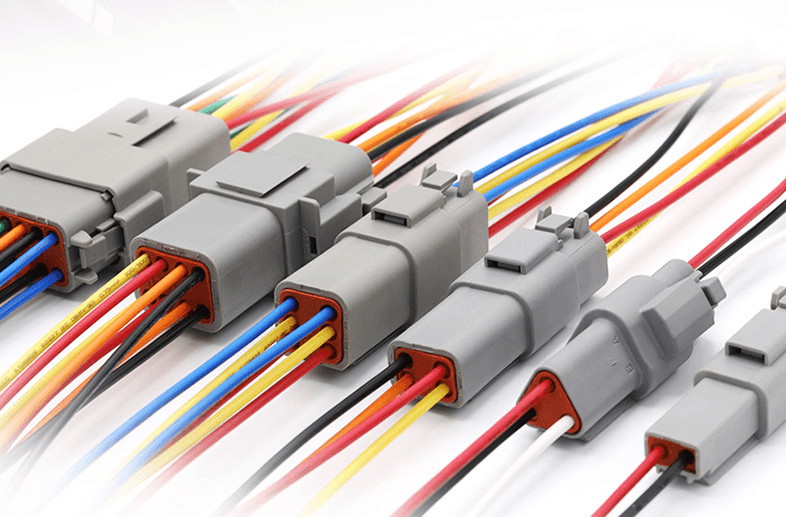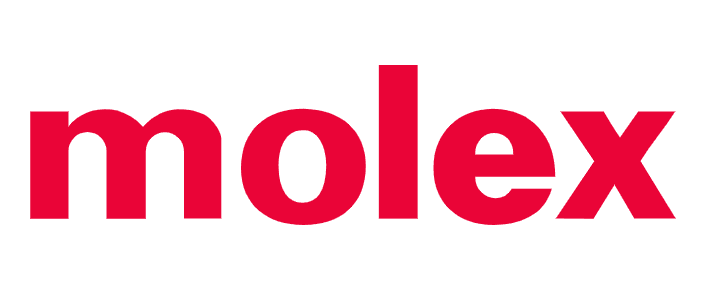What is Amphenol connector, the types,prices?

What is Amphenol connector ? Amphenol connector, designed & produced by Amphenol Corporation, one of the world's largest connector manufacturers, is used in electronic devices and communication systems; What kind of series does Amphenol connectors have? Amphenol LTW specialized in waterproof connectors, the typical series are LTW Circular, X-Lock, waterproof RJ45 , waterproof USB, NEMA 2000, waterproof DVI, waterproof D-Sub, waterproof HDMI, waterproof LED connectors, etc... Amphenol Sine: A leader of industrial interconnection, the main products are Heavy duty power connector, M12 connector, AHD J1939 automotive connector, AR&RT360, DuraMate connector, etc... Amphenol RF: RF is the leading manufacturer of Radio Frequency, microwave and data transmission system, many kind of commonly used coaxial connectors can be found here ,also include RF adapters, RF cable assemblies, RF attenuators and many different kinds of terminators(BNC, SMA, RP-SMA, TNC, N-Type, SMB, etc...) Ampenol Industrial: Ampenol Industrial: specialized in providing high quality connectors and interconnect systems for the industrial fields, including ER Series for Electric Vehicle, MSD series for energy storage, H4 PV connectors for solar market, ePower-Lite for hybrid electric vehicle,Amphe-Lite™Connector Series for communication equipment, etc... Amphenol Aerospace Amphenol Aerospace: The largest Manufacturer for Military & Aerospace Connector, the main products are Circular connectors, Rectangular Connectors, Power Products and High Speed & Fiber Optics, etc... Ampphenol PCD Ampphenol PCD: one of interconnect products for Military & Commercial Aerospace applications, like Junction Modules, Relay Sockets, Rectangular & Circular connectors and accessories, etc... What kind of features & applications does Amphenol connectors have? Amphenol connectors have high quality and reliability, that means can reduce fault and the maintenance costs, also will improve production efficiency a lot; The strong environmental adaptability, excellent water-proof and dust-proof function make the Amphenol connectors can be used in extreme environments;...
Read More »The terminals’s types and shapes

Terminal(Contacts) Shapes and Styles What is the reel and loose piece terminals ? Reel and Loose piece terminals Figure 1 shows loose piece and strip female crimp terminals. Both are crimp terminals. Loose piece terminals connect to a single interface point, prioritizing stability and reliability. Strip terminals come in a series or reel for multiple connections, emphasizing crimping efficiency. Both use mechanical crimping, securing the wire conductor within the terminal for a safe and stable electrical connection. Crimping requires specific wire sizes and stripping lengths. Proper crimp height and wire placement within the terminal are crucial. The loose piece terminal fits 20-24AWG wire; the strip terminal fits 14-18AWG. Both are used in automotive, connector, and wire harness applications. Figure 2 illustrates various terminals, including ring, spade, U-shaped, pin, ferrule, and blade terminals. These are available with or without insulation. They are connected by insertion and crimping or soldering and crimping, using tools like crimpers or hammers. The applicable wire gauge depends on the terminal size. These are used in automotive, aerospace, and industrial electronics. Blind crimping terminals What are Blind crimping terminals ? Blind crimping terminals are crimping unvisible to see the terminal positon , it is a hose crimping postion, you need to positrack the tab while insert wire insulation into the hose, then crimping. It is metal connectors commonly used for electrical connections. Typically made of aluminum or copper, often with an insulating boot, they join wires and conductors through crimping or soldering, enabling current and signal transmission. These terminals are available as insulated or non-insulated (bare) versions, catering to various current ratings and applications. The choice of terminal type depends on the specific needs of the application and the operating environment. Blind crimping terminals offer ease of installation and reliable performance, making them widely...
Read More »Circular and Rectangular Connector types, use, series,price

Circular and Rectangular Connector types, use, series,price What are the different shapes of connectors ? Circular connectors Circular connectors are mostly used for power transmission, but they are also used for signal transmission. Typical circular connectors are M5 M8 M12 M16, M23, D38999 MS5015, etc. This is a circular connector, also known as a circular M12 connector. The specific model is an M12 4-pin (TE T4171010004-001). Constructed with a metal shell and pins, and featuring a rubber seal, it utilizes an M12 thread. This connector is designed for waterproof and shockproof applications. The threaded connection ensures robustness and reliability. Suitable for 22AWG, 4-core wire, it's frequently used in industrial machinery and equipment. Recotangle Connectors Figure 2 depicts a pin header connector, also known as a male header or simply a header. Made of metal or plastic, it consists of two parts: the socket and the pins. These connectors, with their array of metal pins, are commonly found on PCBs or electronic components. Used for power supply, connection, and information transmission in electronic devices, they are typically operated via insertion and removal, primarily in computers, mobile phones, and other electronic devices. Here displays a D-sub connector, recognized by its characteristic D-shaped metal shell, which houses pins and provides the interface for mating plugs and sockets. D-sub connectors come in various sizes, commonly including 9P, 15P, 35P, and 37P. The appropriate size is chosen based on the product's specific needs. They are easy to install, usually by plugging or screwing them in, and are commonly used in computers, printers, and Ethernet applications. D-sub connectors are available in a variety of sizes, commonly including 9P, 15P, 35P, and 37P. The appropriate size is chosen based on the product's specific needs. They are easy to install. D-Sub rectangular socket...
Read More »Molex Connector series, types, price

Molex Connector Introduction What is Molex? Molex, founded in 1938 in the United States, and is now a world-renowned electronic components company. It is dedicated to produce and provide electronic connector, cable, optical fiber, antenna, power supply, etc., covering many fields. Features and applications of Molex connectors Molex is known for its high quality products and innovative capabilities. It has more than 100,000 kinds of products, widely used in communication, home appliances, automobiles, medical and other fields. Types of Molex Connector According to the official description, there are roughly 10 types of Molex connectors as follows Backplane connectors: Traditional and vertical orthogonal configurations enable a variety of flexible designs while providing superior impedance control and high performance, high density and high data rates in high-bandwidth applications. Board-to-board connectors: Whether it is a miniature connection with limited wiring space or a high-power connection or a high-speed, high-density connection, you can find the right solution in this type of connector to simplify PCB wiring and maximize card slot space as well as provide efficient data transfer efficiency. Side card connector: A simple, small and robust socket design that can be plugged into high-speed parallel board plugs, side cards or cables for maximum space savings. FFC/FPC connectors: These connectors from Molex are available in a variety of driver designs including front flip, back flip, non-ZIF, sliders, flexible latching, one-click, etc., combined with multi-pitch designs and circuit sizes, to provide customers with reliable, robust, easy-to-use connector solutions with greater design flexibility. Heavy-duty rectangular connectors: These connectors are mainly used in rugged applications such as industrial robots, mechanical equipment, transportation, power generation and industrial control equipment. I/O Connectors: Available for a wide range of USB products including USB Type A, Type...
Read More »JAE Connector series, types, uses, and price

JAE Connector series, types, uses, and price What is JAE? JAE is Japan Aviation Electronics Industry, Ltd. Is a company focused on providing connectors for various application types. Features and applications of JAE connectors JAE connectors penetrate a very wide range of industries, automobiles, aviation, smart phones and other small equipment are involved. Its products are highly recognized by customers for their high density, high reliability, water and dust resistance, especially in the automotive and aviation fields. Types of JAE Connector According to the official description, there are roughly ten types of JAE connectors as follows: External interface connectors: used for the connection between different devices and systems, can meet various standards according to customer needs. Board-to-board connector: used to connect PCB. Various stack heights, poles and contact spacing can be designed according to product requirements. Board-to-board FPC/FFC connector: used for the connection between PCB and FPC or FFC. And same to the previous board-to-board connector, it can also have a variety of different stack heights, poles quantities and contact spacing according to product requirements. Board-to-wire connector: used for connection between PCB and cable. Round connectors: This type of connector is usually very well sealed. Square-shape connector: This type of connector can often be used in multi-PIN connection design, which can efficiently use wiring space to improve transmission efficiency. Optical fiber connector: used for high-speed, high-bandwidth data transmission and communication. This kind of application generally have the characteristics of high anti-interference. Coaxial cable connector: used to connect coaxial cables. Relay connector: It acts as a link in the circuit. Memory card connector: used to connect SD and SIM cards, there is a variety of different card insertion and withdrawal methods according to customer needs. Memory module connector: It needs to be compatible with memory module standards, such...
Read More »